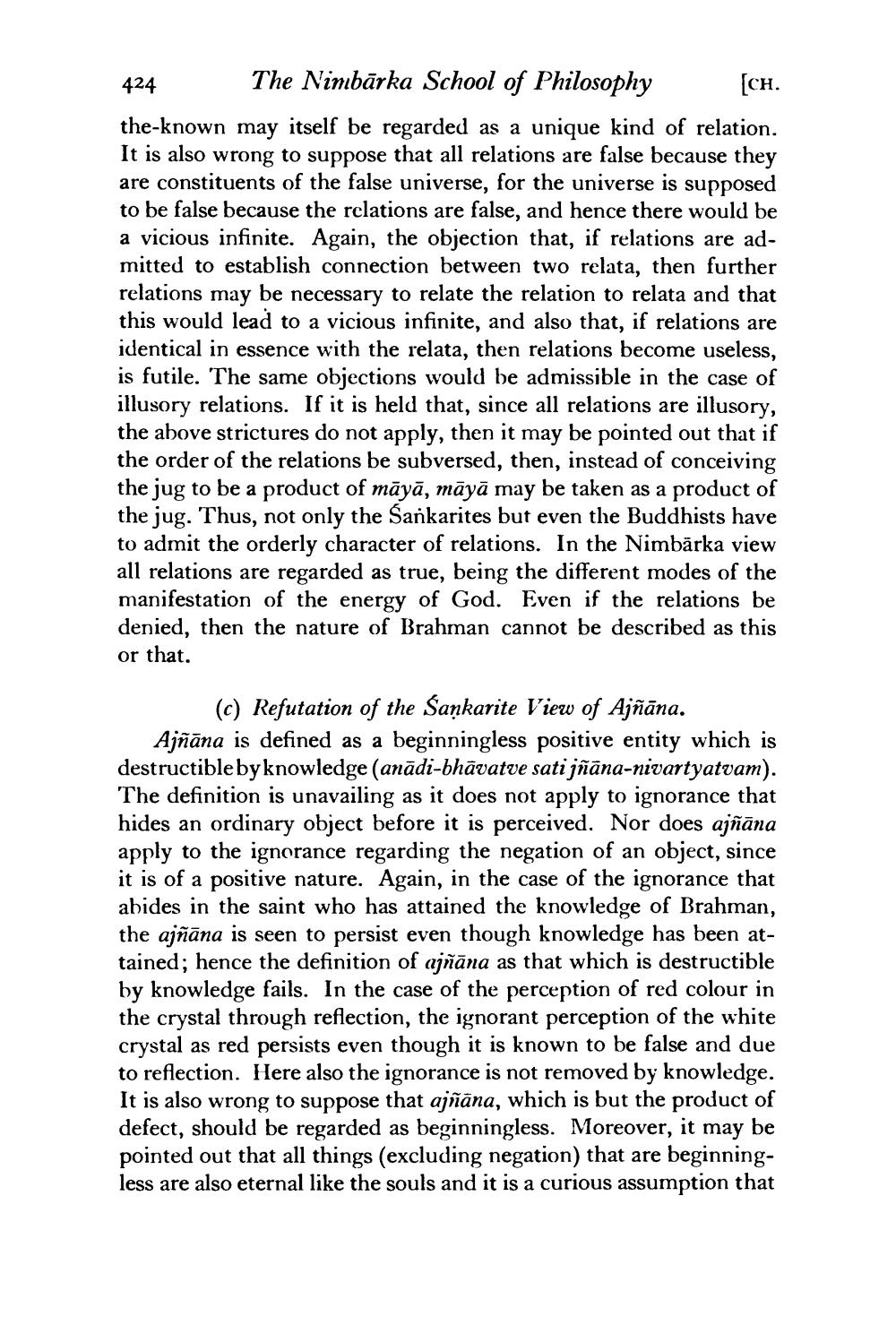________________
424 The Nimbārka School of Philosophy (CH. the-known may itself be regarded as a unique kind of relation. It is also wrong to suppose that all relations are false because they are constituents of the false universe, for the universe is supposed to be false because the relations are false, and hence there would be a vicious infinite. Again, the objection that, if relations are admitted to establish connection between two relata, then further relations may be necessary to relate the relation to relata and that this would lead to a vicious infinite, and also that, if relations are identical in essence with the relata, then relations become useless is futile. The same objections would be admissible in the case of illusory relations. If it is held that, since all relations are illusory, the above strictures do not apply, then it may be pointed out that if the order of the relations be subversed, then, instead of conceiving the jug to be a product of māyā, māyā may be taken as a product of the jug. Thus, not only the Sankarites but even the Buddhists have to admit the orderly character of relations. In the Nimbārka view all relations are regarded as true, being the different modes of the manifestation of the energy of God. Even if the relations be denied, then the nature of Brahman cannot be described as this or that.
(c) Refutation of the Sankarite View of Ajñāna. Ajñāna is defined as a beginningless positive entity which is destructiblebyknowledge (anādi-bhāvatve sati jñāna-nivartyatvam). The definition is unavailing as it does not apply to ignorance that hides an ordinary object before it is perceived. Nor does ajñāna apply to the ignorance regarding the negation of an object, since it is of a positive nature. Again, in the case of the ignorance that abides in the saint who has attained the knowledge of Brahman, the ajñāna is seen to persist even though knowledge has been attained; hence the definition of ajñāna as that which is destructible by knowledge fails. In the case of the perception of red colour in the crystal through reflection, the ignorant perception of the white crystal as red persists even though it is known to be false and due to reflection. Here also the ignorance is not removed by knowledge. It is also wrong to suppose that ajñāna, which is but the product of defect, should be regarded as beginningless. Moreover, it may be pointed out that all things (excluding negation) that are beginningless are also eternal like the souls and it is a curious assumption that




